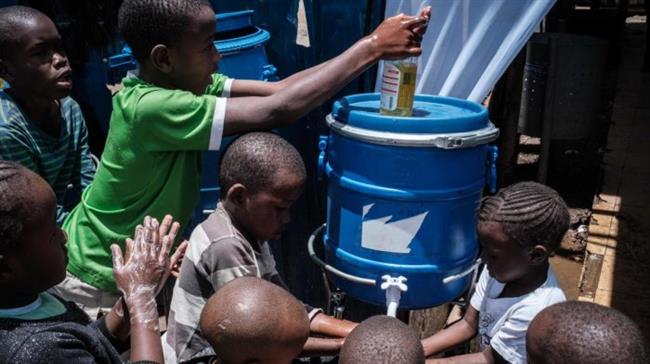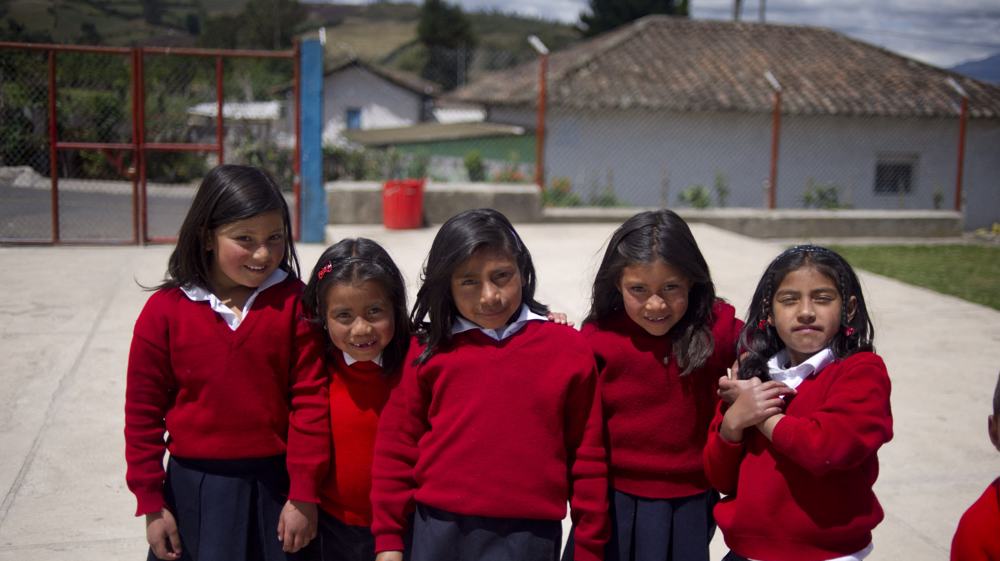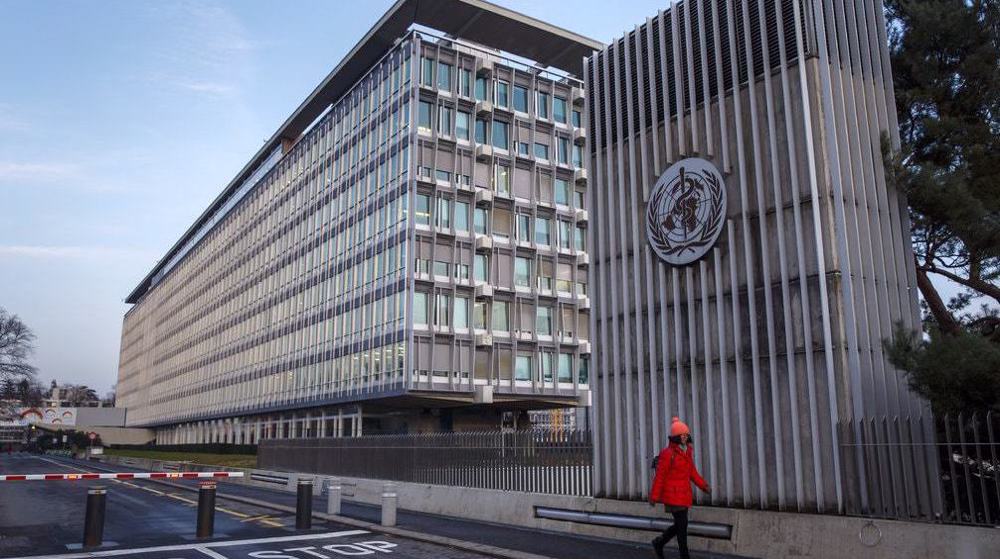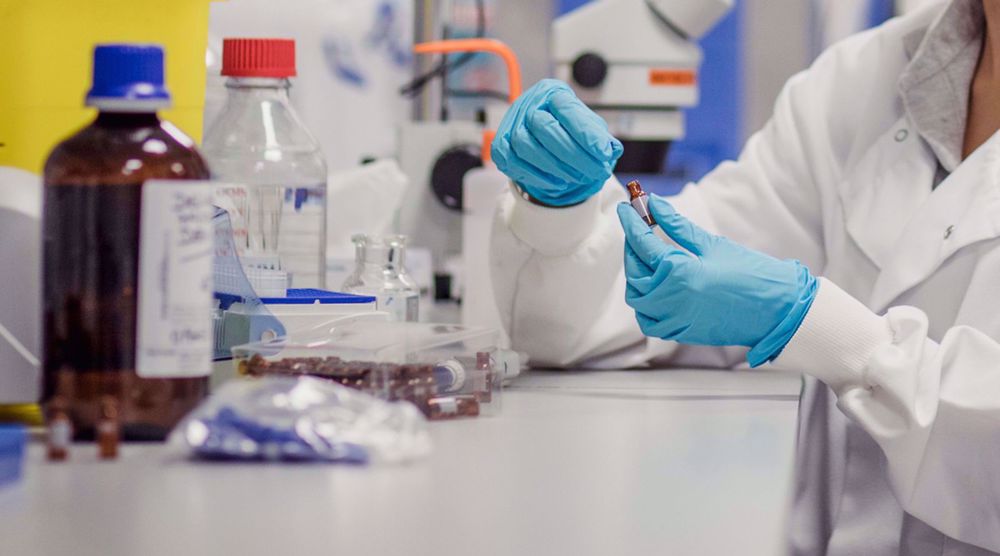UN experts: 40% of world's population unable to protect themselves against corona
UN experts have warned that some three billion people across the globe lack the most basic hygiene necessities such as soap and running water to shield themselves against the coronavirus pandemic.
According to the United Nations Children's Fund, 40 percent of the world's population do not have the means to wash their hands at home.
Sam Godfrey, UNICEF chief of water and sanitation in east and southern Africa, said communities lack easily accessible running water, are unable to buy soap or do not realize its vital role in preventing illness.
"Even for the frontline workers, the health workers, there remains a challenge also in terms of understanding of the importance of handwashing," he told AFP on Thursday.
Those living in tightly-packed slums, as well as the large refugee populations in camps and urban areas in the Horn of Africa, are particularly at risk because they may be malnourished or have underlying health problems. And they often lack sanitation.
In sub-Saharan Africa, 63 percent of people in urban areas -- 258 million people -- lack access to handwashing, according to the UNICEF figures. In central and south Asia this figure is 22 percent, or 153 million people.
The outbreak has infected some 200,000 people and killed 9,000, scorching through populations across the globe after emerging in China late last year.
Lufthansa announces 95% cutback in operations
Lufthansa warned on Thursday that the airline industry may not survive without state aid if the coronavirus pandemic lasts a long time, predicting it would emerge into a "different world" after the crisis.
Like many of its rivals, Lufthansa has slashed flights, cut working hours and suspended its dividend to try to cope with the fallout from a crisis that has seen governments impose draconian travel restrictions and bookings evaporate.
"Our business, and I speak with 30 years of experience, is in an extraordinary situation," CEO Carsten Spohr told reporters. "For weeks, hardly anyone has wanted to fly. Now, hardly anyone can."
The German group stopped short of requesting state loans, however, saying it was cutting costs where it can so it can ride out a crisis that has forced it to ground 700 planes and slash passenger capacity by 95%.
"We would seek active support from the state when this is necessary. This is not yet necessary," Spohr said, adding Lufthansa was in discussions with German state development bank KfW.
Coronavirus border curbs disrupt EU food supplies
Meanwhile, representatives of Europe’s industry and farmers said restrictions imposed by some European Union countries at their borders with other members of the bloc in response to the coronavirus outbreak are disrupting food supplies.
More than a dozen EU countries have tightened or even shut borders that are usually open and uncontrolled, in response to the spreading epidemic.
Because of these measures, "delays and disruption at country borders have been observed for the delivery of certain agricultural and manufactured products, as well as packaging materials," said a statement signed by trade associations representing EU farmers, food traders and the European food and drink industry.
To try to avoid shortages of essential goods, food and medicines, EU leaders endorsed a proposal from the European Commission, the EU executive, on Tuesday to establish fast-track lanes at their countries' frontiers, but they did not agree to keep internal borders open.
The industry said that was not enough.
"We welcome the recent Commission guidelines on border management as a good first step. Despite these guidelines, however, we continue to face severe disruptions," they said.
They urged EU countries and institutions to prepare contingency plans for possible shortages of workers.
France may extend coronavirus lockdown
In a related development on Thursday, the French government said it will extend a two-week lockdown if the coronavirus threat persists.
As the coronavirus sweeps across the globe, country upon country has announced tough restrictions on public life as policymakers struggle to deal with the biggest public health crisis since the 1918 influenza pandemic.
On Thursday, President Emmanuel Macron and his government were coming under intense pressure from doctors, police and the public over a shortage of face masks, gloves and other protective gear.
Countries across Europe are desperately seeking to ramp up the production of face masks, with tight supplies from Italy to Germany testing solidarity between European Union member states.
German army on standby to help with COVID-19 crisis
The German military is also making preparations to help tackle the coronavirus crisis should other civil servants become overwhelmed with the outbreak, Defense Minister Annegret Kramp-Karrenbauer said on Thursday.
"We are preparing for a worst-case scenario where a very large number of people will become infected and we have the human resources to help," she said.
The number of confirmed cases jumped by almost a third on Thursday to reach 11,000, confirming fears that Germany risks ending up with thousands of people needing hospitalization, which would overwhelm its healthcare system just like in Italy.
It is a scenario Chancellor Angela Merkel's government is eager to avoid. It has restricted social contact by shutting down schools, daycare centers and non-essential businesses until after Easter.
Kramp-Karrenbauer said the military had already contacted hundreds of medical reservists and would be able to protect critical infrastructure and distribute medical equipment, medicines and masks should this become necessary.
It could also assist with setting up makeshift hospitals with intensive-care beds and open its own medical centers, where 60-70% of patients currently are civilian, to members of the public needing medical attention after contracting the virus.
US tests two generic drugs in race to find coronavirus cure
Moreover, US researchers, following the lead of scientists in other countries, have launched studies to see whether widely-available, low-cost generic drugs can be used to help treat the illness caused by the new coronavirus.
There are currently no vaccines or treatments for the highly-contagious COVID-19 respiratory illness, so patients can only receive supportive care for now.
But a 1,500-person trial, led by the University of Minnesota, began this week to see whether malaria treatment hydroxychloroquine can prevent or reduce the severity of COVID-19. Two other trials are studying the blood pressure drug losartan as a possible treatment for the disease.
The malaria drug, also being tested in China, Australia and France, was touted earlier this week by Tesla Chief Executive Elon Musk, who recovered from malaria in 2000 after taking the medication.
Besides having a direct antiviral effect, hydroxychloroquine suppresses the production and release of proteins involved in the inflammatory complications of several viral diseases.
"We are trying to leverage the science to see if we can do something in addition to minimizing contacts," said Dr. Jakub Tolar, dean of the University of Minnesota Medical School and vice president for clinical affairs. "Results are likely in weeks, not months."
Israeli court advances forced displacement of Palestinians in favor of Jewish settlers
UN Security Council members condemn Israel's recognition of Somaliland
Israeli high-tech faces talent flight in wake of Gaza genocide: Report
The Year That Was: Wars, genocide, protests, scandals – events that defined 2025
Iran, Oman foreign ministers stress confronting sources of unrest in region
VIDEO | Gaza named deadliest place for journalists in 2025
VIDEO | Policy paper sparks debate over US intentions in Tunisia
Khaleda Zia, Bangladesh’s first female prime minister, dies at 80















 This makes it easy to access the Press TV website
This makes it easy to access the Press TV website